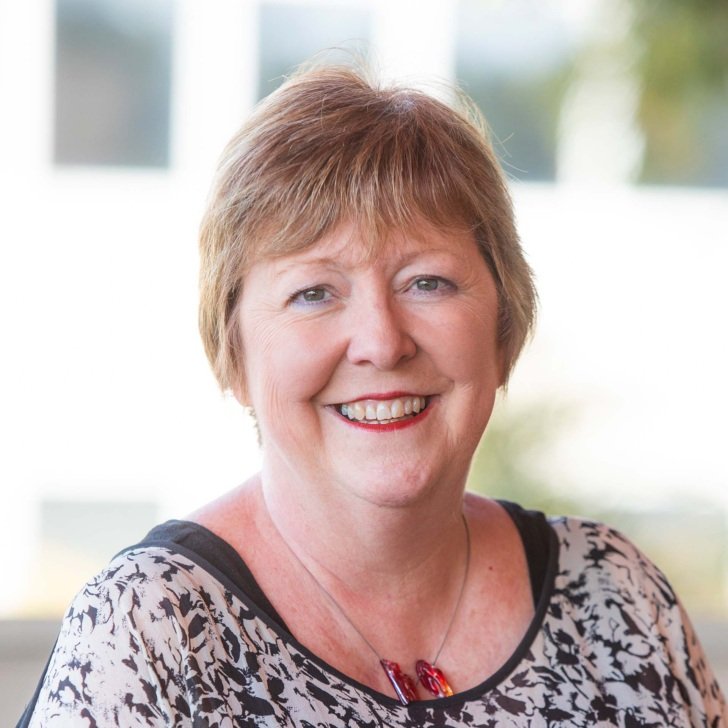Neurorehabilitation and Recovery Group
The Neurorehabilitation and Recovery Group is a multidisciplinary team of researchers, health professionals and research students committed to improving quality of life for survivors of stroke through neuroscience and evidence-based rehabilitation. Our mission is to develop the science of neurorehabilitation needed to enable individuals to meet the demands of everyday living. In achieving this our program of research focuses on:
- understanding how the brain adapts and how we might harness that potential in rehabilitation
- science-based rehabilitation of arm function after stroke
- personalised and connected recovery pathways supported by new technologies
- prediction of recovery trajectories
- translation to practice.
The Neurorehabilitation and Recovery Group is founded by Professor Leeanne Carey and is integrated with research conducted at La Trobe University by Professor Carey and the team. Our team also partner with healthcare organisations nationally and with leading researchers internationally.
Research interests
|
Techniques
|
About our research
The overall aim of the Neurorehabilitation and Recovery Research Group is to is to help people who have experienced a stroke regain lost function and return to valued activities. Our focus is translation of neuroscience into evidence-based interventions and improved quality of life for survivors of stroke.
Research in our group spans: neuroimaging and discovery science; mapping recovery trajectories after stroke; restorative approaches to rehabilitation; and implementation of evidence to transform practice. A key and relatively unique strength is the integration of techniques, skills and perspectives across these areas of research.
Our enablers include imaging of brain networks, use of artificial intelligence, quantitative measurement of sensation and stroke recovery, effective rehabilitation interventions, operationalised practice protocols, implementation interventions, and collaborative networks.
Current flagship programs include:
- NHMRC Partnership grant: A Network of sites and ‘up-skilled’ therapists to deliver best-practice stroke rehabilitation of the upper limb
- NHMRC Ideas grant: Staying connected: personalising stroke recovery and rehabilitation through new technologies for people with stroke living at home.
- NHMRC Project grant: TASK AT Home: Improving arm function after stroke using task specific training.
‘The potential to drive adaptive neural plastic changes through rehabilitation is enormous and likely to lead to major changes in rehabilitation practice and better outcomes for survivors of stroke. Our team have developed new therapies based on neuroscience and are implementing these in clinical practice settings and in the home, with improvement in function and quality of life for survivors of stroke.’
Research projects
- A network of sites and ‘up-skilled’ therapists to deliver best-practice stroke rehabilitation of the upper limb
- Effective sensory rehabilitation after stroke: targeting viable brain networks
- Improving arm function after stroke using task-specific training
- Pain education for stroke
- SENSe – Evidence-based sensory assessment and rehabilitation
Research team
Research team head
Group head
Team members
Research fellows
- Dr Brendon Haslam
- Dr Irene Koukoulas
- Dr Karine Koh
- Dr Liana Cahill
Research and technical staff
- Anna Butler
- Alistair Walsh
- Farnaz Khoshmanesh
PhD students
- Yvonne Mak-Yuen
- Cheryl Nielson
- Rohini Godfrey
- Anna Joy
- Zona Rens
- Sarah Steinfort
- Prasad Hettiarachchige
Masters students
- Fatima-tul Zahra
Selected publications
- Carey LM, Abbott DF, Lamp G, Puce A, Seitz RJ and Donnan GA (2016), ‘Same intervention-different reorganisation: the impact of lesion location on training-facilitated somatosensory recovery after stroke’, Neurorehabilitation and Neural Repair, 30(10):988-1000, doi:10.1177/1545968316653836
- Carey LM, Walsh A, Adikari A, Goodin P, Alahakoon D, De Silva D, Ong K-L, Nilsson M, and Boyd L (2019), ‘Finding the intersection of neuroplasticity, stroke recovery and learning: scope and contributions to stroke rehabilitation’, Neural Plasticity, 2019:5232374, doi:10.1155/2019/5232374
- Cahill LS, Carey LM, Lannin NA, Turville M, Neilson CL, Lynch EA, McKinstry CE, Han JX, and O’Connor D (2020), ‘Implementation interventions to promote the uptake of evidence-based practices in stroke rehabilitation’, Cochrane Database of Systematic Reviews 2020, 10(10):CD012575, doi.10.1002/14651858.CD012575
- Koh C-L, Yeh C-H, Liang X, Vidyasagar R, Seitz RJ, Nilsson M, Connelly A and Carey LM (2021), ‘Structural connectivity remote from lesions correlates with somatosensory outcome post-stroke’, Stroke, 52(9):2910-2920, doi:10.1161/strokeaha.120.031520
Haslam BS, Butler DS, Moseley GL, Kim AS and Carey LM (2022), ‘“My Hand Is Different”: Altered body perception in stroke survivors with chronic pain’, Brain Sciences, 12(10):1331, doi:10.3390/brainsci12101331
Contact us
For more information about our group’s research you can contact us by submitting this form.
